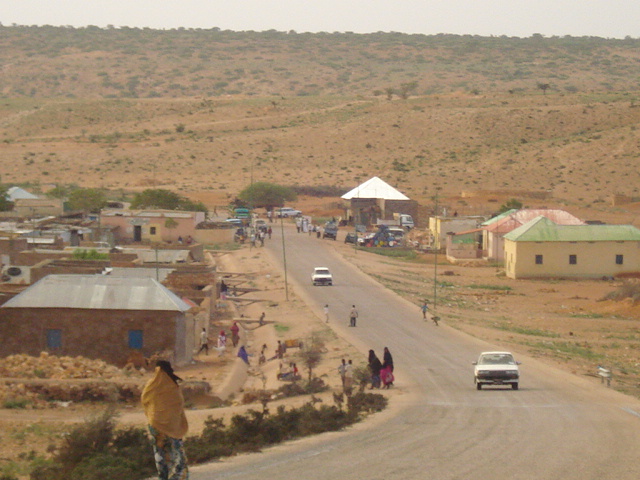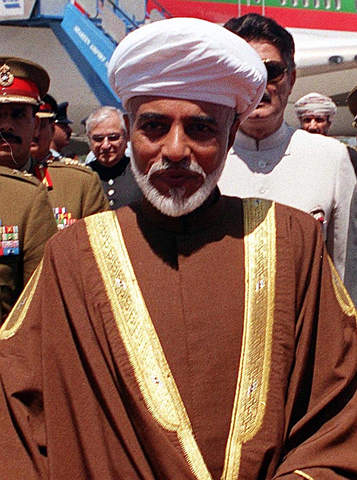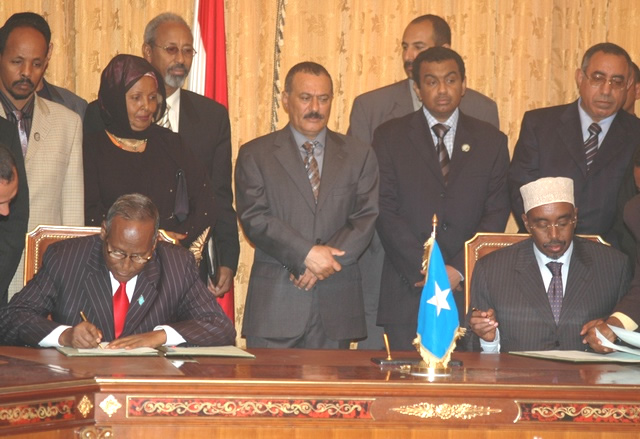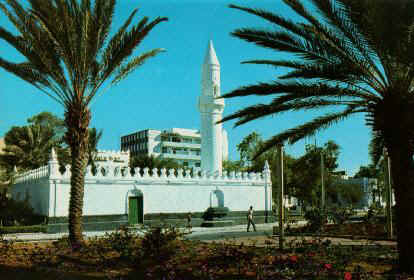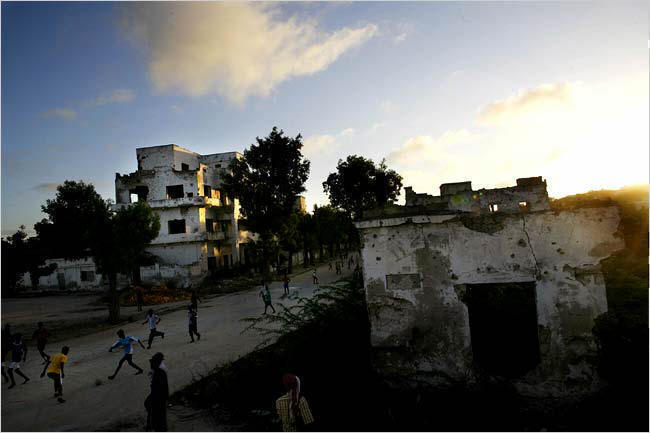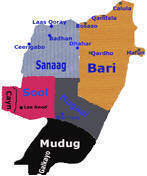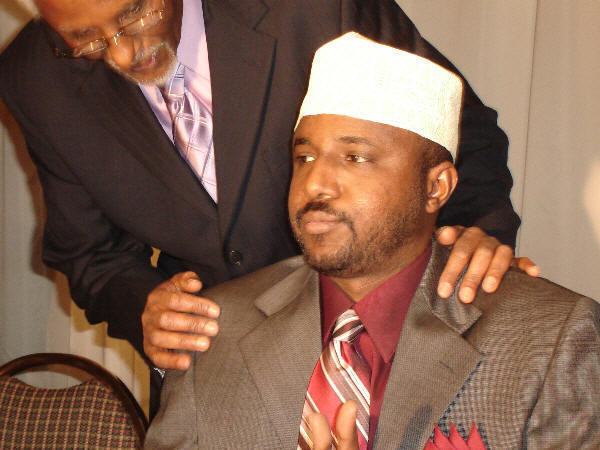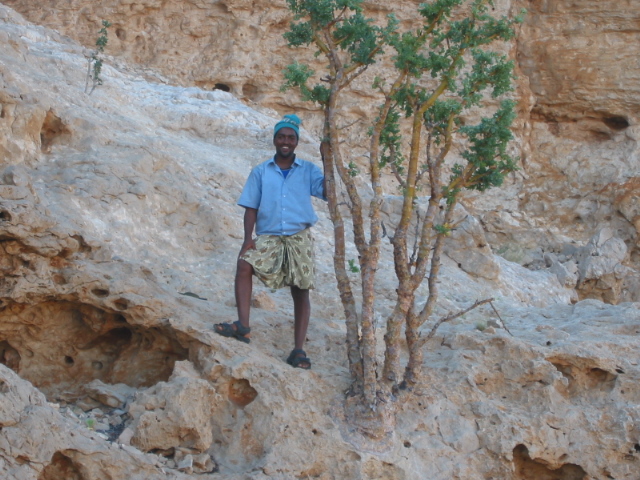
Islamist Al-Shabaab, Makeup, Goals, Leaders, Al-Qaeda Link Examined
Jeune Afrique
Saturday, August 7, 2010
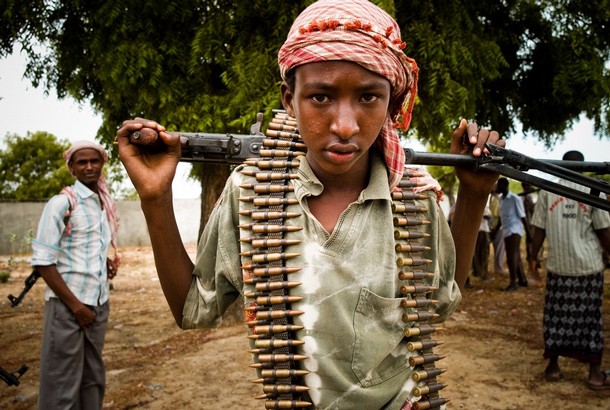
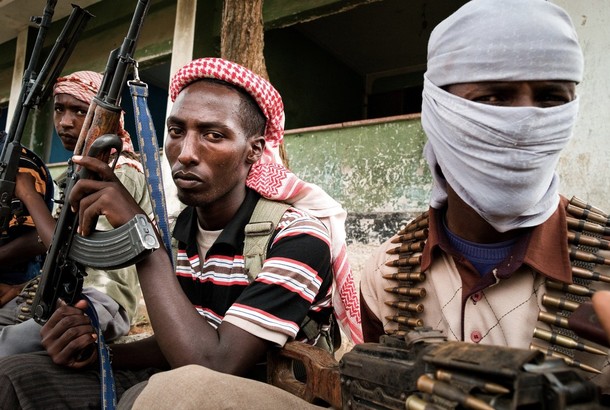
Islamic fighters in
Report by Constance Desloire: �
�Al-Shabaab listens to no one. We do not even know who its leaders are,� Libyan leader Mu`ammar al-Qadhafi complained in an interview with the French media on 20 July. By claiming credit for the double attack in
Who Are They?
Founded in 2004, the �Movement of Warrior Youth� has some 2,000 members. They include dissidents from the historical Islamist party of the 1990`s in
What Is Its Link With Al-Qa`ida?
Over the past year and a half, tensions have developed between the �Somalis,� who concentrate on national objectives, and the �foreigners,� estimated to total anywhere between 200 and 1,200. The majority are Somalis from the diaspora who were born abroad, but who have recently returned to the country, along with a few veterans from the Middle East or
Who Are Its Leaders?
The group communicates very little and has no clear hierarchy. Nevertheless, a number of commanders have asserted themselves. Sheikh Mukhtar Abu Zubair has been at the top since 2007, but it has been during the past two years, as Al-Shabaab has moved in the direction of jihadism, that he has gained importance. This native of
What Do They Want?
Al-Shabaab`s agenda was initially national, religious and political: to establish an Islamic republic and drive out the Ethiopian Army and troops from the African Union Mission in Somalia (AMISOM). However, since the Ethiopian withdrawal in January 2009 and the TFG`s adoption of the Sharia, Al-Shabaab has become radicalized in order to remain visible. The requirement that one wear a beard, amputations, and whippings have created a rift between Al-Shabaab and a large majority of the population that practices a moderate form of Islam. Once a month, Abu Zubair delivers a radio message to the Somali people in which he castigates the presence of AMISOM and the wars waged by the
Is Dialogue Possible?
In 2007, Al-Shabaab began to vigorously oppose discussions between former members of the Islamic Courts and the TFG for the purpose of forming a national union. And yet, this fragmented group still has leaders who focus on national issues and with whom a dialogue would be possible. For the time being, however, the TFG has no strategy of national reconciliation. It has identified no potential interlocutors or possible mediators. Its security is extremely precarious, and its officials are not all willing to share power.
(Description of Source: Paris Jeune Afrique in French -- Privately owned, independent weekly magazine)
� Compiled and distributed by
Ugandan police chief warns of new terror plot
The New Vision online
Monday, August 9, 2010
Text of report by Cyprian Musoke entitled �Police chief warns of new terror plot� published by state-owned, mass-circulation Ugandan daily The New Vision website on 9 August
The security threat posed by the terrorists in the country is still very high, the Inspector-General of Police, Maj-Gen Kale Kayihura, has said and asked for extra vigilance.
During a security brief with entrepreneurs and head of government institutions, Kayihura warned that the terrorists were planning more attacks.
Suspected suicide bombers struck the Ethiopian Village Restaurant and the Kyadondo Rugby Club in
Scores were injured, five of whom are still admitted at
�Terrorists are targeting stop points for fuel tankers, filling stations and tanks, populated establishments including schools and also intend to assassinate VIPs,� a source at the meeting said.
Fuel tankers that park on roadsides like at Mbikko, Naluwerere, Nalukolongo, Ndeeba and at Busitema are key targets as they can explode and give more lethal force to the bombs, the source added. Other high targets are garages where terrorists can easily park vehicles laden with bombs.
Kayihura specifically asked garages near fuel stations to thoroughly search vehicles taken in for repair. He also revealed that the terrorists were involved in money laundering and often send the cash through the mobile money transfer system.
He also noted that the Somali terrorists were now using local agents, who draw little or no attention. A 19-year-old man, Ali Issa Ssenkumba, held in connection with the 11 July bombings, is one of such recruits.
Ssenkumba was arrested last month by the Kenyan police and handed over to the Ugandan authorities. He is among over 20 detained terror suspects. Pakistani and Somali nationals are among those in custody.
According to Kayihura, security organs are also investigating reports that some sheikhs in the country are offering religious support to terrorists.
He urged employers to do background checks on people they recruit, as the terrorists had infiltrated the recruitment process so as to target high-rise buildings.
Kayihura also cautioned owners of buildings with underground parking to screen all vehicles. He urged institutions to reinforce routine security checks around their premises.
He said terrorist scouts, some staying in Nakulabye and Namasuba, have been spying on possible targets. He said the thugs pay rent upfront of up to two years, making their offer irresistible to landlords. He urged property owners to screen their tenants.
For military skills, Kayihura said the terrorists have joined private security companies and companies which have been training security guards for
�The plice will henceforth inspect private security companies offering guarding services to various institutions to see whether they comply with strict security measures,� he announced.
Kayihura disclosed that the suicide bomber in Kabalagala was of Kenyan origin, the one at Kyadondo was a Somali, while the one who attempted to set off a bomb in Makindye was a Ugandan.
Kayihura thanked the Kenyan police for sharing information that led to the arrest of the terrorists.
The co-ordinator of the security measures, the deputy director of operations, Grace Turyagumanawe, said audit teams had been set up in the five city divisions to work alongside the Police.
�We have a list of things every premise owner should do. They should have access control to their premises. Major installations should have a perimeter wall with a gate so that everybody entering gets checked,� he said.
Premises, Turyagumanawe added, should also have checking equipment like walk-through scanners, hand-probes, CCTV monitors and undercarriage mirrors for searching cars.
He advised companies to have evacuation plans and employ Police or private security guards who screen their employees.
(Description of Source: Kampala The New Vision online in English -- Website of the state-owned daily publishing a diversity of opinion; URL: http://www.newvision.co.ug)
� Compiled and distributed by
|
|
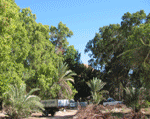 Sawirro Somaliya  |

|
GOVERNANCE
The Scourge and Hope of Somalia A New Book By Ismail Ali Ismail  Which Way to the Sea, Please? By Nuraddin Farah Dhulkii Burcad-Badeedda .jpg) Budhcad Badeed Weli Qiil ma Leeyahay? 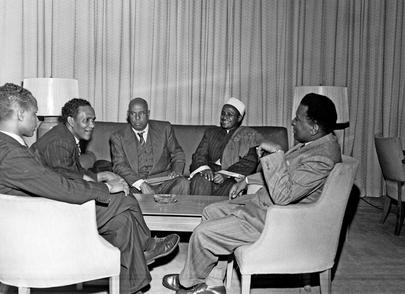 SYL LETTERS By A S Faamo |
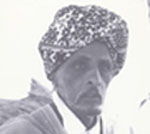 |
 |
© Copyright BiyoKulule Online All rights reserved�
Contact us [email protected] or [email protected] |


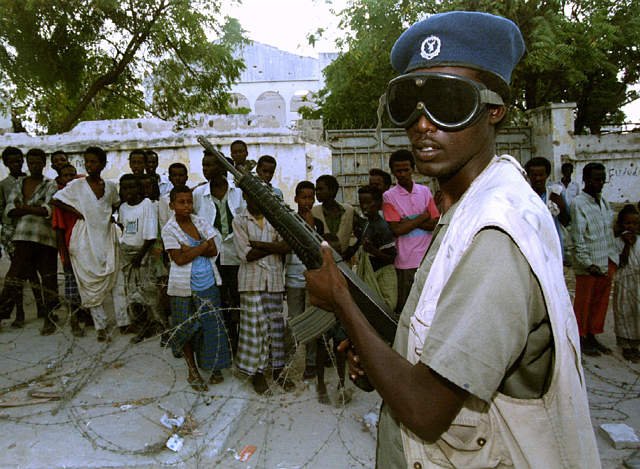


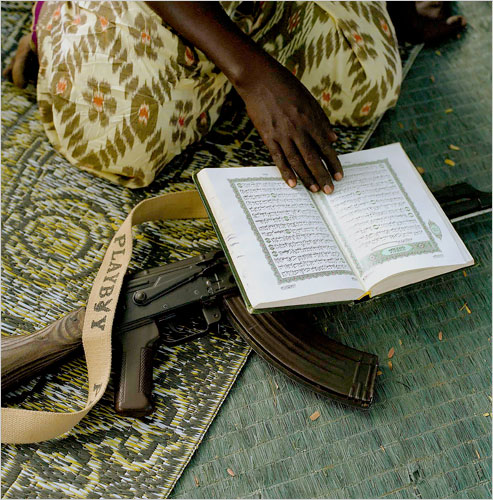

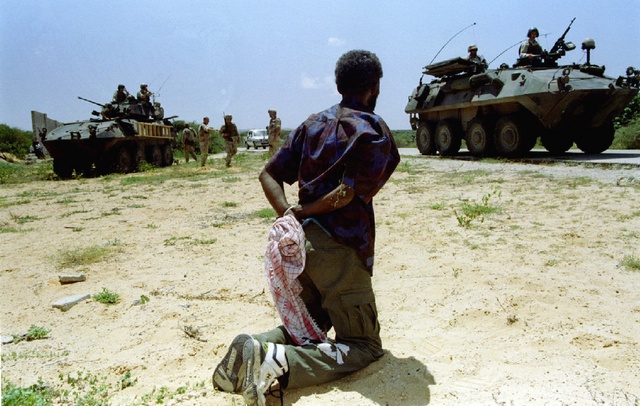
.jpg)




